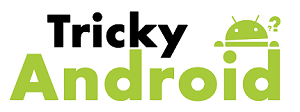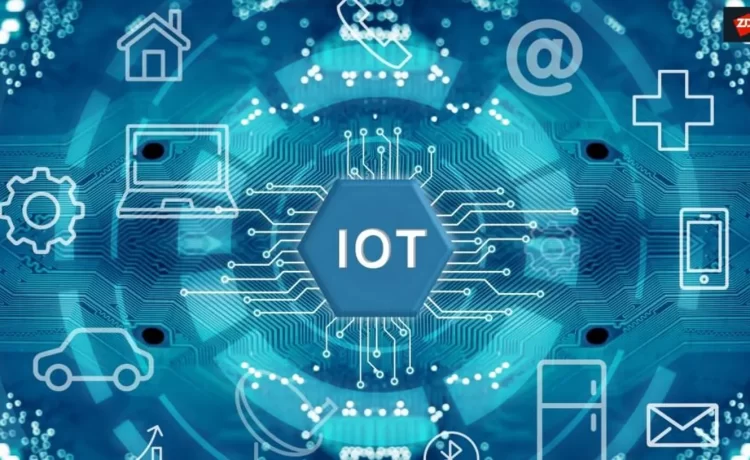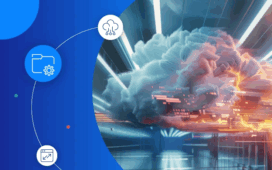The Internet of Things (IoT) is transforming the way businesses operate in every industry. IoT technologies are becoming increasingly popular, and IoT solutions and IoT platforms are the two main types of IoT technologies. However, many businesses struggle to understand the differences between them and which is best for their needs. This blog post will explain the differences between IoT solutions and IoT platforms, their advantages and disadvantages, and how to choose the right one for your business.
Understanding IoT Solutions
IoT solutions are pre-packaged applications that perform specific tasks. They are designed to solve a specific problem, such as automating a process or monitoring or analyzing data. IoT solutions are easy to implement and require minimal development. They are suitable for businesses that require quick solutions to specific problems.
IoT solutions come in various forms, such as smart home devices, wearables, and industrial IoT devices. These devices are usually pre-built and come with pre-installed software. They are designed to perform a specific function, such as monitoring temperature, tracking inventory, or managing energy consumption.
Characteristics of IoT Solutions
IoT solutions have several characteristics that make them unique. These include:
- Pre-built applications: IoT solutions are pre-built applications that are designed to perform a specific function.
- Easy to implement: IoT solutions are easy to implement and require minimal development. They can be set up quickly and easily, which makes them ideal for businesses that need quick solutions.
- Limited customization: IoT solutions offer limited customization. They are designed to perform a specific function, and their customization is usually limited to minor changes.
Examples of IoT Solutions
IoT solutions are used in various industries to solve specific problems. Some examples of IoT solutions include:
- Smart home devices: Smart home devices, such as smart thermostats, smart lighting systems, and smart security systems, are IoT solutions that help homeowners automate their homes.
- Wearables: Wearables like fitness trackers and smartwatches are IoT solutions that help individuals monitor their health and fitness.
- Industrial IoT devices: Industrial IoT devices, such as sensors and monitors, are IoT solutions that help businesses monitor their operations and optimize their processes.
Understanding IoT Platforms
IoT platforms are a collection of hardware and software components that enable businesses to create, deploy, and manage IoT solutions. They provide a platform for businesses to develop their own IoT applications. IoT platforms offer more flexibility and scalability than IoT solutions but require more development and customization.
IoT platforms consist of hardware components, such as sensors and gateways, and software components, such as data analytics and cloud services. These components work together to create a platform businesses can use to develop their IoT applications.
Characteristics of IoT Platforms
IoT platforms have several characteristics that make them unique. These include:
- Flexibility: IoT platforms offer more flexibility than IoT solutions. They can be customized to meet a business’s specific needs, making them ideal for businesses that need more flexibility.
- Scalability: IoT platforms are scalable, which means they can grow as a business grows. They can handle large amounts of data and can be used to manage multiple IoT solutions.
- Development and customization: IoT platforms require more development and customization than IoT solutions. They are designed to be flexible and scalable, which requires more development and customization.
Examples of IoT Platforms
IoT platforms are used in various industries to manage IoT solutions. Some examples of IoT platforms include:
- AWS IoT: AWS IoT is an IoT platform that enables businesses to connect devices to the cloud, store and analyze data, and create IoT applications.
- Microsoft Azure IoT: Microsoft Azure IoT is an IoT platform that enables businesses to build, deploy, and manage IoT solutions.
- IBM Watson IoT: IBM Watson IoT is an IoT platform that provides businesses with tools to manage and analyze IoT data and to create IoT applications.
Comparison of IoT Solutions and IoT Platforms
IoT solutions and platforms differ in functionality, architecture, scalability, and cost.
Functionality
IoT solutions are pre-built applications that offer limited functionality. They are designed to perform a specific task, and their customization is usually limited to minor changes. IoT platforms, on the other hand, offer more functionality. They provide businesses with tools to create IoT applications and manage and analyze data.
Architecture
IoT solutions have a simple architecture. IoT platforms, on the other hand, have a more complex architecture. They consist of hardware and software components that are designed to be flexible and scalable, which requires more development and customization.
Scalability
IoT solutions are not scalable. They are designed to perform a specific task, and their customization is usually limited to minor changes. IoT platforms, on the other hand, are scalable. They can handle large amounts of data and can be used to manage multiple IoT solutions.
Cost
IoT solutions are usually less expensive than IoT platforms. They are pre-built applications that require minimal development, which makes them more affordable. IoT platforms, on the other hand, are more expensive. They require more development and customization, which makes them more costly.
Which One to Choose: IoT Solutions or IoT Platforms?
Choosing between IoT solutions and IoT platforms depends on several factors, such as the business needs, budget, and development capabilities.
An IoT solution may be the best option if a business needs a quick solution to a specific problem. IoT solutions are easy to implement and require minimal development, which makes them ideal for businesses that need quick solutions.
An IoT platform may be the best option if a business needs more flexibility and scalability. IoT platforms offer more customization and scalability than IoT solutions, which makes them ideal for businesses that need more flexibility.
Real-World Applications of IoT Solutions and IoT Platforms
IoT solutions and IoT platforms have various applications in different industries.
Use cases of IoT solutions in industries such as healthcare, agriculture, and manufacturing include:
- Remote patient monitoring: IoT solutions can monitor patients remotely and provide healthcare professionals with real-time data.
- Soil moisture and temperature monitoring: IoT solutions can be used to monitor soil moisture and temperature, which can help farmers optimize their crop yield.
- Inventory tracking: IoT solutions can be used to track inventory in manufacturing facilities, which can help businesses optimize their processes.
Use cases of IoT platforms in industries such as logistics, energy, and retail include:
- Vehicle and shipment monitoring: IoT platforms can monitor vehicles and shipments in real-time, which can help logistics companies optimize their operations.
- Energy consumption management: IoT platforms can monitor energy consumption in buildings, which can help businesses reduce their energy costs.
- Inventory tracking and customer behavior analysis: IoT platforms can be used to track inventory and customer behavior in retail stores, which can help businesses optimize their sales.
Conclusion
IoT solutions and IoT platforms offer different benefits and drawbacks. Choosing the right IoT solution or platform is essential for businesses to achieve their goals efficiently and effectively. Businesses can decide which technology to use for their specific needs by understanding the differences between IoT solutions and IoT platforms.
FAQs
1. What is the difference between IoT solutions and IoT platforms?
IoT solutions are pre-built applications that perform a specific task, while IoT platforms are a collection of hardware and software components that enable businesses to create, deploy, and manage IoT solutions.
2. How do I choose between IoT solutions and IoT platforms?
Choosing between IoT solutions and IoT platforms depends on several factors, such as the business needs, budget, and development capabilities. An IoT solution may be the best option if a business needs a quick solution to a specific problem. An IoT platform may be the best option if a business needs more flexibility and scalability.
3. Can an IoT platform be used as an IoT solution?
An IoT platform can be used as an IoT solution if it offers pre-built applications that meet a specific business need.
4. What are the key features to look for in an IoT solution or IoT platform?
The key features to look for in an IoT solution or IoT platform include functionality, architecture, scalability, and cost. Businesses should also consider factors such as the level of customization and the ability to analyze and manage data.













